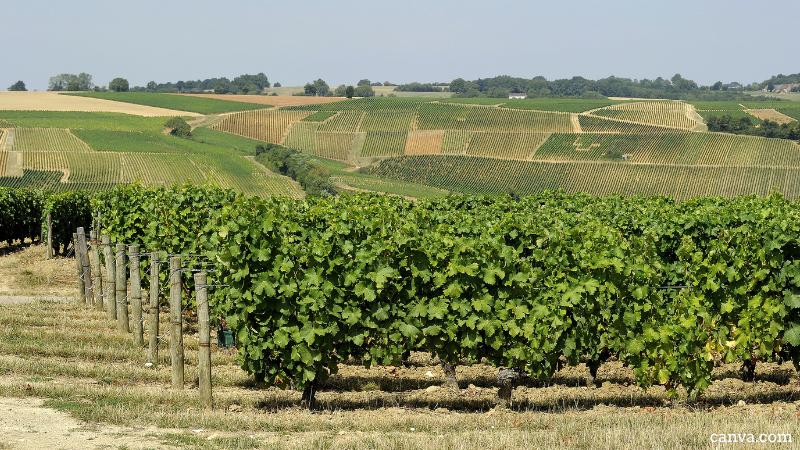
Did the Commission breach its own laws by approving the French CAP Strategic Plan? According to Collectif Nourrir and ClientEarth, it did! After their internal request for an internal review of the approval of the plan fell short, the two organisations decided to take it to the next level, and bring the case to the Court of Justice of the European Union. So what are their arguments? And what results can be expected of the process? Let’s assess
This article is based on the Collectif Nourrir FAQ and Press Release
Introduction
The enhanced subsidiarity within the new CAP provided Member States with a significant degree of flexibility in crafting their CAP Strategic Plans.The flexibility lies not in the objectives of the CAP but rather in the various ways to reach them.
For this flexible approach to work, it was necessary to establish specific objectives of the CAP that all Member States would need to meet and define indicators that would serve as evidence of funds being allocated towards achieving these objectives.
This is established in article 5, 6 and 7 of the CSP regulation.
But what would happen if a Member State had no genuine intention to fulfil specific objectives? In principle, this is precisely what Observation Letters were designed to prevent. Within the new delivering process of the CAP, Observation Letters were the intermediate step towards final approval of the CSPs. They provided an opportunity for the Commission to interfere in the subsidiarity and make sure that the CSPs were complete, consistent and coherent with the CSP regulation and effective in contributing to the specific objectives of the CAP.
However, despite Observation Letters highlighting specific weaknesses in numerous CSPs, Member States rarely used the opportunity to revise the content of their CSPs. Instead, they often adjusted their justifications for designing them in such manner.
(We have covered this issue on ARC here in April last year and here in June last year)
In the end, the Commission decided to approve all CSPs despite having itself pointed out specific weaknesses in these letters as related to achieving the specific objectives of the CAP.
What should we do if even the Commission fails to adhere to its own rules? That is what Collectif Nourrir set out to discover. With the assistance of ClientEarth, it has initiated legal proceedings against the Commission in the European Court of Justice, with the aim of compelling the Commission to review its approval of the French CSP and to force its modification in order to achieve the essential objectives of the CAP.

The legal road to the CJEU
One does not simply take the Commission to court. Unlike Member States and companies, NGOs do not have direct access to the CJEU.
To be able to take action, Collectif Nourrir and ClientEarth first had to complete an administrative step known as a “request for internal review”. For that purpose, environmental NGOs can use the Aarhus Convention. It authorises civil society organisations to request the review of non-legislative administrative acts adopted by an EU institution or body, if these acts have legal and external effects, and if they contain provisions likely to contravene environmental law.
This is why Collectif Nourrir and ClientEarth focussed mostly on environmental arguments for their request, although they insist that reaching a fairer CAP is as important as reaching a greener one.
Collectif Nourrir and ClientEarth submitted a request for internal review back in November 2022.
In May 2023, the Commisson answered the request, deeming it “unfounded”. It is the Commission’s answer to the request, considered insufficient by Collectif Nourrir and ClientEarth, that they are now contesting to the CJEU.

A closer look at the Commission’s arguments
The Commission’s response did not focus specifically on the French CSP but rather on the approval process itself. Below, we will examine four arguments put forth by the Commission for rejecting the request for an internal review and explain why these justifications are inadequate.
Table 1: Debunking the Commission’s argument for not following up on the request for internal review of the approval of the French CSP (based on a presentation by Collectif Nourrir and request for internal review)
| Commission’s arguments | Collectif Nourrir and ClientEarth assessment of the argument |
| Member States have, in line with the New CAP Delivery Model, flexibility to design CSP elements in a way that, in their view, best suits their needs and responds to local conditions. | True, but the control exercised by the Commission on the plans cannot be only formal/superficial as the achievement of results is what creates a level playing field across the EU, ensuring that the CAP remains “common”. The role assigned to the Commission in the CSP approval process was therefore to ensure that this new subsidiarity did not jeopardise the common nature of the CAP. We maintain that this guarantee has not been provided and that this lack of governance has resulted in CSPs that do not comply with the regulation. |
| The explanation (as to how the CSPs will contribute to climate and environmental action) is to be provided with respect to the climate and environmental architecture as a whole. | The green architecture is based on 3 categories: conditionality, eco-schemes and rural development. It means that the whole is only as good only as its components (which have all been assessed prior to the request). |
| The requesters’ claim that the Commission observations were not addressed is unfounded, considering also that each Commission observation does not have to result in a modification of the CSP proposal. | The Applicants do not argue that the Commission can only approve a plan that addresses each and every observation made in an observation letter. However, where the observations directly pertain to compliance with essential elements of the CSP regulation and these issues are not remedied in the final plan, it clearly exceeds the Commission’s implementing powers to then disregard these essential elements and approve the plan nonetheless. |
| The requester fails to consider the constraints in terms of time, nature and complexity of the assessments carried out by the Commission in the CSP approval process. | In respect of the pleas on manifest error, the Court has established that even where an EU institution is called upon to make a complex assessment, this does not “affect their duty to establish whether the evidence relied on is factually accurate, reliable and consistent, whether that evidence contains all the information which must be taken into account in order to assess a complex situation, and whether it is capable of substantiating the conclusions drawn from it”. As for time constraints, they were established by the Commission. There is no need for Collectif Nourrir and ClientEarth to indulge them on that part. |
… and Collectif Nourrir’s arguments for a greener CAP
ClientEarth and Collectif Nourrir focused on three aspects of the French CSP to demonstrate its non-compliance with CAP objectives:
- Support measures for cattle farming, which do not encourage a reduction in greenhouse gas emissions (particularly methane) by not targeting aid sufficiently at sustainable livestock farming;
The conditions of access to coupled aid for cattle are not strict enough to effectively encourage extensification and grassland models.
- The financial aid granted for measures to reduce the use of pesticides and fertilisers is insufficient to encourage a reduction in their use, with harmful consequences for French water bodies in particular;
- The requirements to obtain financial support through the CAP to maintain and preserve biodiversity, which do not encourage farmers to adopt more respectful practices.
With regard to the last two points, ClientEarth and the Collectif Nourrir have widely highlighted the inadequacy of the budget for relevant measures, such as agri-environmental and climate measures, the support for organic farms, and notably the total inoperability of certain measures such as the “path to certification using HVE labelling” eco-scheme, as well as the criteria for environmental cross-compliance.
Because of the specific environmental requirement to the Aarhus Convention, the focus has been centred on environmental arguments. But Collectif Nourrir and ClientEarth also call for review of fairness elements in the French CSP.

What can we expect?
The main objective is to obtain a ruling from the CJEU asking the Commission to re-examine the decision approving the French CSP and, consequently, an obligation on France to amend certain elements of its CSP.
The decision handed down by the CJEU could have significant political consequences. In particular, it would clarify the Commission’s powers when assessing and approving the CSPs submitted by all the Member States, as well as demonstrating that the governance put in place by the new CAP is not adequate to support the transition of the agricultural sector.
This appeal is an opportunity to put the issue of governance and the safeguards needed to prevent further renationalisation of the CAP back on the agenda for discussions on the post-2027 CAP.
Download this article as a PDF
 This article is produced in cooperation with the
This article is produced in cooperation with the
Heinrich Böll Stiftung European Union.
More on CAP Strategic Plans
“A Fairer CAP”, Really? | Analysing Fairwashing in CAP Talks and Practices
CAP Environmental Derogations: What is the Impact on Food Security?
CAP post-2027: An Integrated Rural and Agricultural Policy – Part 2
CAP post-2027: An Integrated Rural and Agricultural Policy – Part 1
Can the CAP Strategic Plans Help in Reaching our Pesticide Reduction Goals?
Wallonia’s Observation Letter: A plan that fails to address climate and biodiversity crises
CAP Strategic Plans and Food Security: Fallow Lands, Feeds, and Transitioning the Livestock Industry
A Just and Green CAP and Trade Policy in and Beyond the EU – Part 2
A Just and Green CAP and Trade Policy in and Beyond the EU: Part 1
Bulgaria’s CAP Strategic Plan: Backsliding on Nature and Biodiversity
Changes “required” to Ireland’s CAP Strategic Plan – European Commission
French CAP Plan: What Opportunities for Change During the New 2022-27 Presidential Term?
CAP, Fairness and the Merits of a Unique Beneficiary Code – Matteo Metta on Ireland’s Draft Plan
ARC Launches New Report on CAP as Member States Submit Strategic Plans
Slashing Space for Nature? Ireland Backsliding on CAP basics
Quality Schemes – Who Benefits? Central America, Coffee and the EU
Civil Society Organisations Demand Open and Ambitious Approval of CAP Plans
CAP Strategic Plans: Germany Taking Steps in the Right Direction?
CAP Strategic Plans: Support to High-Nature-Value Farming in Bulgaria
Commission’s Recommendations to CAP Strategic Plans: Glitters or Gold?
German Environment Ministry Proposals For CAP Green Architecture
CAP Performance Monitoring and Evaluation Framework – EP Position
A Rural Proofed CAP post 2020? – Analysis of the European Parliament’s Position
CAP Beyond the EU: The Case of Honduran Banana Supply Chains
CAP | Parliament’s Political Groups Make Moves as Committee System Breaks Down
CAP & the Global South: National Strategic Plans – a Step Backwards?
CAP Strategic Plans on Climate, Environment – Ever Decreasing Circles
European Green Deal | Revving Up For CAP Reform, Or More Hot Air?
Climate and environmentally ambitious CAP Strategic Plans: Based on what exactly?
How Transparent and Inclusive is the Design Process of the National CAP Strategic Plans?




